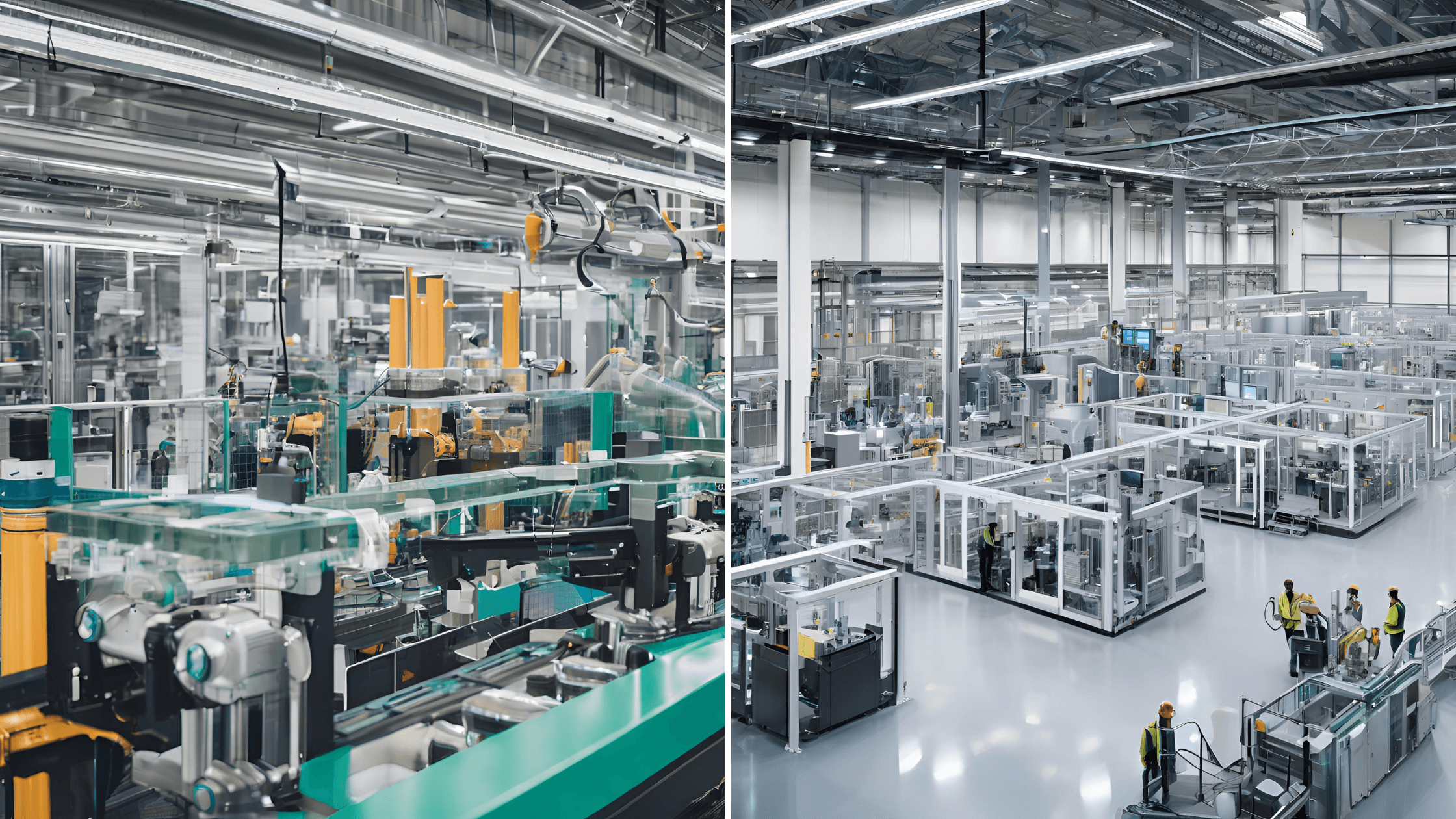Kunal Chopra
May 24, 2023
Predictive Analytics and AI for Sustainable Compliance Management
The integration of technology into compliance practices has become more than a necessity; it's a competitive advantage. For manufacturers navigating the complex demands of regulations while striving for sustainability, technologies like predictive analytics and artificial intelligence (AI) are reshaping the rulebook. By seamlessly aligning compliance structures with sustainability goals, manufacturers can achieve efficiency, minimize environmental impact, and maintain their competitive edge.
This blog explores the role of predictive analytics and AI in compliance management, dives into real-world applications, and offers actionable steps for implementation.
Understanding Sustainable Compliance Management
What is Sustainable Compliance Management?
Sustainable compliance management involves adhering to industry regulations while maintaining a strong focus on sustainability. Manufacturers face increasing pressure to reduce their carbon footprint, minimize waste, and improve energy efficiency—all while complying with a growing body of regulations from labor laws to environmental policies.
Challenges in Achieving It
Constantly Evolving Regulations: Staying updated with the latest guidelines across different regions is challenging.
High Costs: Investing in sustainable technologies alongside compliance management is resource-intense.
Data Management: Managing vast amounts of compliance-related data manually can lead to inefficiencies and errors.
Balancing Priorities: Sustainability goals often require operational overhauls, adding complexity to compliance efforts.
Enter predictive analytics and AI—the tools designed to address these challenges with precision and efficiency.
The Role of Predictive Analytics and AI
What Are Predictive Analytics and AI?
Predictive analytics involves using historical data to foresee future outcomes, making it easier for companies to anticipate compliance risks before they arise. AI, on the other hand, offers intelligent automation, aiding manufacturers in monitoring regulations, streamlining workflows, and generating actionable insights in real-time.
Benefits of Predictive Analytics and AI
Enhanced Efficiency: Automates manual compliance tasks, freeing up valuable resources.
Risk Mitigation: Anticipates compliance issues and recommends corrective actions before violations occur.
Sustainability Alignment: Tracks environmental impact and ensures alignment with sustainability goals, like carbon neutrality or waste reduction.
Data-Backed Decision-Making: Provides real-time insights to support strategic actions.
Cost Savings: Reduces penalties, fines, and operational inefficiencies.
“The ability to predict and prevent compliance issues before they arise is a game-changer for the manufacturing sector, ensuring not just compliance but also competitive advantage.” – Alex Lee, VP of Technology Solutions, ManuVation
Real-World Applications
Case Studies of Success
TechComply (Automotive Manufacturing):
TechComply uses AI and predictive analytics to monitor emissions and ensure compliance with shifting environmental regulations. By integrating this technology, they reduced compliance violations by 25% in one year and improved sustainability metrics through better energy utilization.
GreenTech Innovations (Food Processing):
GreenTech Innovations implemented AI to track and optimize waste management processes. Their predictive systems improved waste reduction by 35% and supported their goal of achieving carbon neutrality ahead of schedule.
Data Visualization
Growth in AI Adoption: 35% increase in the use of AI for compliance management compared to last year.
Violation Reduction Rates: Companies using predictive analytics and AI reduced compliance violations by 25%, compared to 5% using traditional methods.
Environmental Impact Metrics: AI-integrated companies saw a 30% reduction in emissions and a 20% decrease in waste.
Challenges and Considerations
While the benefits are immense, implementing predictive analytics and AI comes with its own set of challenges.
Key Challenges
Cultural Adoption: Employees may resist adopting new technologies unless properly trained.
Initial Investment: High upfront costs for integrating AI solutions, though long-term savings often outweigh them.
Data Privacy and Security Risks: Ensuring compliance data is securely managed is critical.
Regulatory Complexity: While AI helps track regulations, understanding the nuances of implementation requires human expertise.
“While the technology is powerful, the real challenge lies in cultural adoption and change management within organizations.” – Taylor Brown, AI Implementation Consultant, NextGen Strategies
Steps to Implement Predictive Analytics and AI
If you're considering adopting predictive analytics and AI for compliance management, here's how to get started.
Evaluate Your Needs:
Identify existing gaps in compliance and sustainability management. For instance, are you struggling with monitoring regulations or analyzing data manually?
Select the Right Tools:
Explore AI solutions tailored to your industry. Look for platforms that offer predictive analytics, automated workflows, and sustainability tracking.
Train Your Team:
Conduct workshops and hands-on training sessions so employees feel confident using advanced tools.
Pilot the System:
Test AI and predictive analytics tools on a smaller scale, such as monitoring specific regulations, before a full rollout.
Secure Data Management Processes:
Robust data privacy protocols are essential, especially for compliance-related information.
Monitor and Iterate:
Continuously assess the performance of the system. Use insights to fine-tune processes and unlock greater efficiencies over time.
Future Outlook
Looking ahead, predictive analytics and AI are set to become indispensable tools in compliance management.
Trends to Watch
Real-Time Audits: AI-driven audits will detect and rectify compliance gaps in real time.
Sustainability Integration: AI tools will integrate deeper into sustainability metrics, offering actionable recommendations to achieve environmental goals.
Zone-Specific Customization: Different regions have unique regulatory requirements; AI will adapt its recommendations automatically based on local laws.
“The integration of AI and predictive analytics in compliance management is not just a technological leap; it's a strategic move towards sustainability and efficiency.” – John Doe, Chief Compliance Officer, TechComply
Moving Forward with Predictive Analytics
Predictive analytics and AI are no longer optional for manufacturers aiming to thrive while staying compliant and sustainable. These tools provide efficiency, precision, and actionable insights manufacturers need in today’s data-driven world. As Dr. Jane Smith, Director of Sustainability at GreenTech Innovations, stated, “Manufacturers that embrace these technologies are not only meeting regulatory standards but are also leading the charge in environmental responsibility.”
Are you ready to transform your compliance management process and align your operations with sustainability goals? Explore the limitless possibilities that predictive analytics and AI can bring to your business.
Kunal Chopra
Kunal Chopra is the CEO of Certivo, an AI-driven compliance management platform revolutionizing how manufacturers navigate regulatory challenges. With a career spanning over two decades, Kunal is a seasoned technology leader, 3x tech CEO, product innovator, and board member with a passion for driving transformative growth and innovation.
Before leading Certivo, Kunal spearheaded successful transformations at renowned companies like Beckett Collectibles, Kaspien, Amazon, and Microsoft. His strategic vision and operational excellence have led to achievements such as a 25x EBITDA valuation increase at Beckett Collectibles and a 450% shareholder return at Kaspien. He has a track record of turning challenges into opportunities, delivering operational efficiencies, and driving market expansions.
Kunal’s deep expertise lies in blending technology and business strategy to create scalable solutions. At Certivo, he applies this expertise to empower manufacturers, using AI to turn product compliance from an operational burden into a strategic advantage.
Kunal holds an MBA from The University of Chicago Booth School of Business, an MS in Computer Science from Clemson University, and a BE in Computer Engineering from The University of Mumbai. When he’s not transforming businesses, Kunal is an advocate for innovation, growth, and building cultures that inspire excellence.
Stay tuned for insights from Kunal on how technology can redefine compliance, drive efficiency, and create opportunities for growth in the manufacturing sector.





